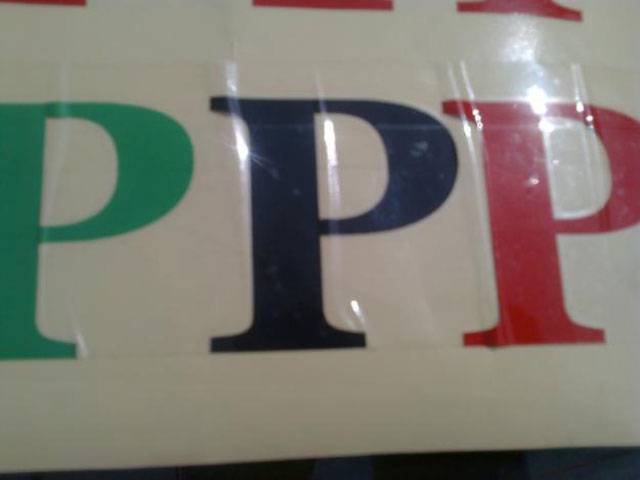ISLAMABAD - On the second day of the budget debate in the Senate, a young opposition lawmaker of Pakistan People’s Party (PPP) came with the idea to nationalise all independent power producers (IPPs), saying this would decrease the prices of electricity as well as loadshedding.
As the Senate started its business after the Deputy Chairman Senate, who was in the chair, Sabir Ali Baloch in his short remarks paid homage to late Baloch nationalist leader Nawab Khair Bakhsh Marri. The legislators both from treasury as well as opposition benches delivered their budget speech on the annual budget 2014-15. Many of them criticised the government for presenting anti-masses and pro-businessman budget and some treasury side members appreciated some steps of the government taken in the budget.
Osman Saifullah Khan in his budget debate said, “The government must nationalise IPPs.” He viewed that this would decrease electricity tariff as well as loadshedding. He elaborated that the government has to pay 15 per cent return on the total investment of IPPs annually under the sovereign guarantees and agreement made with them. He said if the government took loan on 7 per cent and paid to the IPPs to nationalise these, this would save the remaining 7 per cent expenditure of the government.
Osman Saifullah said that 22 families had been ruling the economy of the country in Ayub Era and today two families in the country held 80 per cent capitalisation of the stock market. “Their wealth has increased 40 per cent during the last two years and their stock holding increased up to $2 billion,” he said.
He said that tax exemptions were increased in the budget, subsidies were slashed and the government instead of widening the tax network imposed indirect tax on retailers. He said that the PML-N government as promised in its manifesto could not create the ministry of energy to overcome the energy crisis. Instead of doing this, the minister of water and power was given the additional charge of defence ministry, he said.
Criticising the government policies, Osman Saifullah lamented that amount being spent on metro bus project was the sa me being spent on water resources. The government has not mentioned domestic savings in the budget as the national saving reduced this year to Rs 170 billion from 380 billion of last year. At last he opined that the Senate should be pulled out of the budgetary process, as the finance ministry was not ready to pride them even budget strategy paper.
Lala Abdur Rauf criticised the government for increasing a meagre amount in the salaries of the government employees. He remarked that the government took no step for improving the situation of those 50 per cent people living below the poverty line. However, he appreciated the federal government for improving the budget deficit.
Syed Muzaffar Hussain in his speech focussed on the agriculture sector condemning the government that it had given no incentive to the sector that employs 45 per cent of the total labour force of the country. “Without growth in the agriculture sector, growth in the economy of the country is not possible,” he said, adding that the agriculture sector was placed on the lowest priority in the budget. He suggested for reduction in the prices of agriculture machinery including tractors. He also suggested giving the role to the Senate in the post-budgetary process and also for formation of joint parliamentary committees of the parliament for expedient legislation.
Haji Adeel in his speech said that federal government should allocate funds for the incomplete development projects in Khyber Pakhtunkhwa and appropriate funds should be allocated for the development of FATA. He showed his surprise that the prices of spare parts of motorcycles were increased in the budget but duty on 1800cc vehicles was reduced. He sought income tax and sales tax waiver for the war-torn province of KP.
Talha Mahmood appreciated the government, saying Pakistan’s position improved last year as compared to previous years but things could not improve in a day. “Positive signals are coming,” he said. He condemned the government for allocating all funds on the communication system of the country. He suggested that issuance of exemption certificates should be banned and sales tax should be reduced.
Dr Karim Ahmed Khawaja of PPP termed the budget anti-masses and said, “There is no relief for the poor and middle class in the budget and there are incentives only for the rich.” He endorsed Osman Saifullah that IPPs should be nationalised and said that his party would oppose the privatisation policy of the government tooth and nail.
Friday, April 19, 2024
PPP wants IPPs’ nationalisation

Caption: PPP wants IPPs’ nationalisation
US vetoes Palestine’s bid for full UN membership
8:27 AM | April 19, 2024
20pc Discos employees involved in power theft: Minister
April 19, 2024
Five govt officials shot dead in D I Khan
April 19, 2024
Parvez Elahi’s indictment delayed again in two cases
April 19, 2024
Hepatitis Challenge
April 18, 2024
IMF Predictions
April 18, 2024
Wheat War
April 18, 2024
Rail Revival
April 17, 2024
Addressing Climate Change
April 17, 2024
Justice denied
April 18, 2024
AI dilemmas unveiled
April 18, 2024
Tax tangle
April 18, 2024
Workforce inequality
April 17, 2024
New partnerships
April 17, 2024
ePaper - Nawaiwaqt
Advertisement
Nawaiwaqt Group | Copyright © 2024





